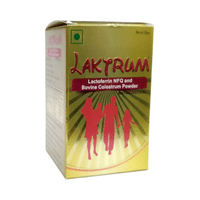No Anxit 0.5mg/10mg Tablet

food interaction for No Anxit
alcohol interaction for No Anxit
pregnancy interaction for No Anxit
lactation interaction for No Anxit
food
alcohol
pregnancy
lactation
No Anxit 0.5mg/10mg Tablet may be taken with or without food, but it is better to take it at a fixed time.
None
None
CAUTION
It is unsafe to consume alcohol with No Anxit 0.5mg/10mg Tablet.
UNSAFE
No Anxit 0.5mg/10mg Tablet may be unsafe to use during pregnancy. Although there are limited studies in humans, animal studies have shown harmful effects on the developing baby. Your doctor will weigh the benefits and any potential risks before prescribing it to you. Please consult your doctor.
CONSULT YOUR DOCTOR
No Anxit 0.5mg/10mg Tablet is probably unsafe to use during breastfeeding. Limited human data suggests that the drug may pass into the breastmilk and harm the baby.
CONSULT YOUR DOCTOR
SALT INFORMATION FOR No Anxit
Flupenthixol(0.5mg)
Uses
How it works
Flupenthixol is a typical antipsychotic. It works by blocking the action of dopamine, a chemical messenger in the brain that affects thoughts and mood.
Common side effects
Weight gain, Tremors, Akathisia (inability to stay still), Vomiting, Fatigue, Insomnia (difficulty in sleeping), Depression, Tachycardia, Decreased libido, Dizziness, Headache, Loss of accommodation, Micturition disorders, Confusion, Hypotension (low blood pressure), Abdominal pain, Rash, Abnormal liver function tests, ECG changes, Blood circulation disorder, Lymphatic system abnormalities, Hypersensitivity, Neuroleptic malignant syndrome
Nortriptyline(10mg)
Uses
Nortriptyline is used in the treatment of depression and bed-wetting. It is used in patients intolerant of or unresponsive to alternative treatment options for depression.
How it works
Nortriptyline is a tricyclic antidepressant. It increases the levels of chemical messengers in the brain that help in regulating the mood and treat depression.
Common side effects
Weight gain, Orthostatic hypotension (sudden lowering of blood pressure on standing), Dryness in mouth, Constipation, Convulsion, Decreased libido, Vomiting, Nausea, Agitation, Fatigue, Confusion, Dilatation of pupil, Tremors, Taste change, Paresthesia (tingling or pricking sensation), Abnormality of voluntary movements, Headache, Loss of accommodation, Palpitations, Atrioventricular block, Nasal congestion (stuffy nose), Erectile dysfunction, Abnormal ECG, Hypomania, Insomnia (difficulty in sleeping), Ringing in ear, Diarrhea, Rash, Urticaria, Facial swelling, Bone marrow depression, Akathisia (inability to stay still), Involuntary muscle movement
SUBSTITUTES FOR No Anxit
8 Substitutes
8 Substitutes
Sorted By
 Rs. 117.13pay 31% more per Tablet
Rs. 117.13pay 31% more per Tablet Rs. 65save 28% more per Tablet
Rs. 65save 28% more per Tablet Rs. 212.60pay 57% more per Tablet
Rs. 212.60pay 57% more per Tablet Rs. 60save 33% more per Tablet
Rs. 60save 33% more per Tablet Rs. 140pay 56% more per Tablet
Rs. 140pay 56% more per Tablet
Expert advice FOR No Anxit
- You have been prescribed Flupenthixol for the treatment of schizophrenia.
- Take it at bedtime to avoid feeling sleepy during the day.
- Use caution while driving or doing anything that requires concentration as Flupenthixol can cause dizziness and sleepiness.
- Avoid drinking alcohol while taking this medicine as it can make drowsiness worse.
- Inform your doctor if you experience any abnormal movements, particularly of the face, lips, jaw and tongue, while taking this medicine.
- It may increase your weight, blood sugar and cholesterol. Eat healthy, exercise regularly and monitor your blood levels regularly.
- Don't stop taking Flupenthixol without talking to your doctor first as it may cause worsening of symptoms.
Frequently asked questions FOR No Anxit
Flupenthixol
Q. What is Flupenthixol deconate?
Flupenthixol belongs to a class of medication called as typical antipsychotic. It acts by increasing the amounts of chemical (serotonin), in the brain. Flupenthixol decanoate is a long-acting preparation of Flupenthixol for injection into the muscles, which may be given at a frequency ranging from once in a week to once in 4 weeks
Q. What is Flupenthixol used for?
Flupenthixol is used in the treatment of schizophrenia and other psychoses which are disorders where individuals are unable to distinguish between what is real and unreal, think clearly, manage emotions, relate to others, and function normally
Q. Why is Flupenthixol banned?
Flupenthixol in combination with melitracen is banned in india due to safety concern
Nortriptyline
Q. What is Nortriptyline used for?
Nortriptyline is used to treat depression and nocturnal (night time) bedwetting in children. It restores the chemical imbalance in the brain and enhances mood and behavior. In some cases, it may also be prescribed to relieve neuropathic (nerve) pain.
Q. Can I take Nortriptyline for nerve pain? How do I know if I have nerve pain?
Yes, Nortriptyline can be taken for nerve pain. Your doctor may prescribe this medicine in combination with gabapentin. Nerve pain (or neuropathic pain) is commonly described as a shooting, burning or stabbing type of pain that may be associated with tingling, numbness or a pin and needles like feeling. The pain may be spontaneous which means it may be triggered without the presence of any stimulating factor. Additionally, you may experience an increase in the sensitivity to touch. Consult your doctor if you experience such pain.
Q. What are the side effects of Nortriptyline?
The side effects of Nortriptyline are increased heart rate, weight gain, difficulty in urination, orthostatic hypotension (sudden decrease in blood pressure on standing), dryness in mouth and constipation. Please consult your doctor if these side effects do not go away or worry you.






















